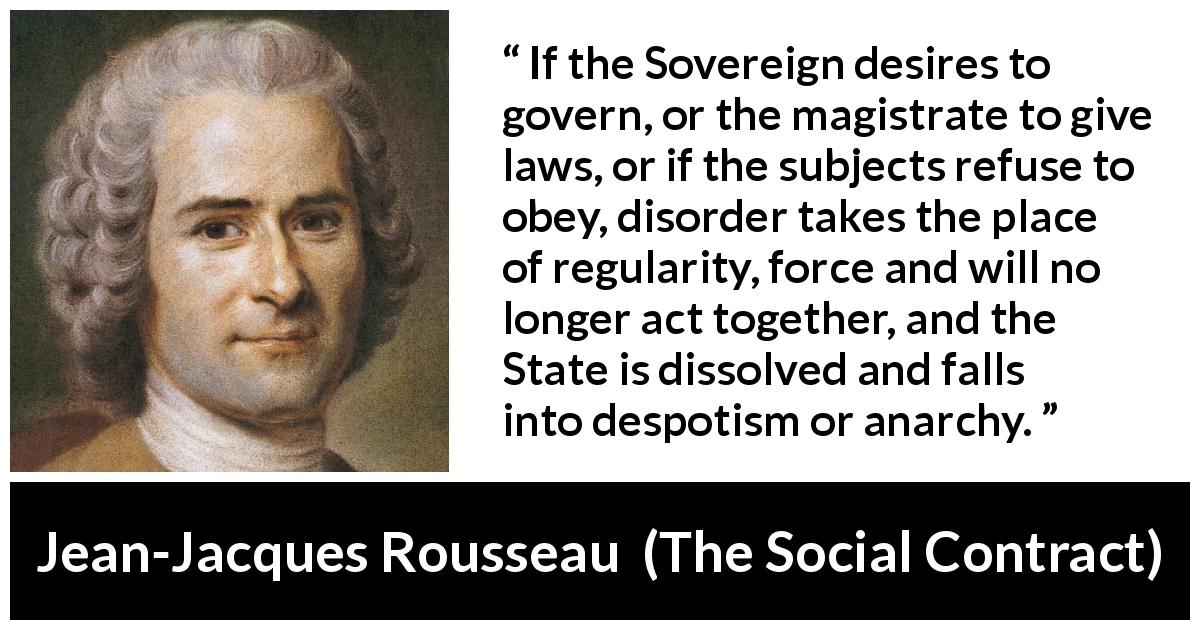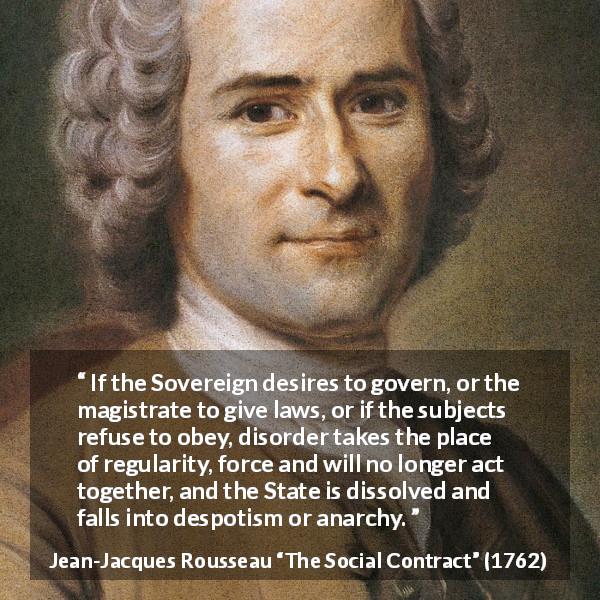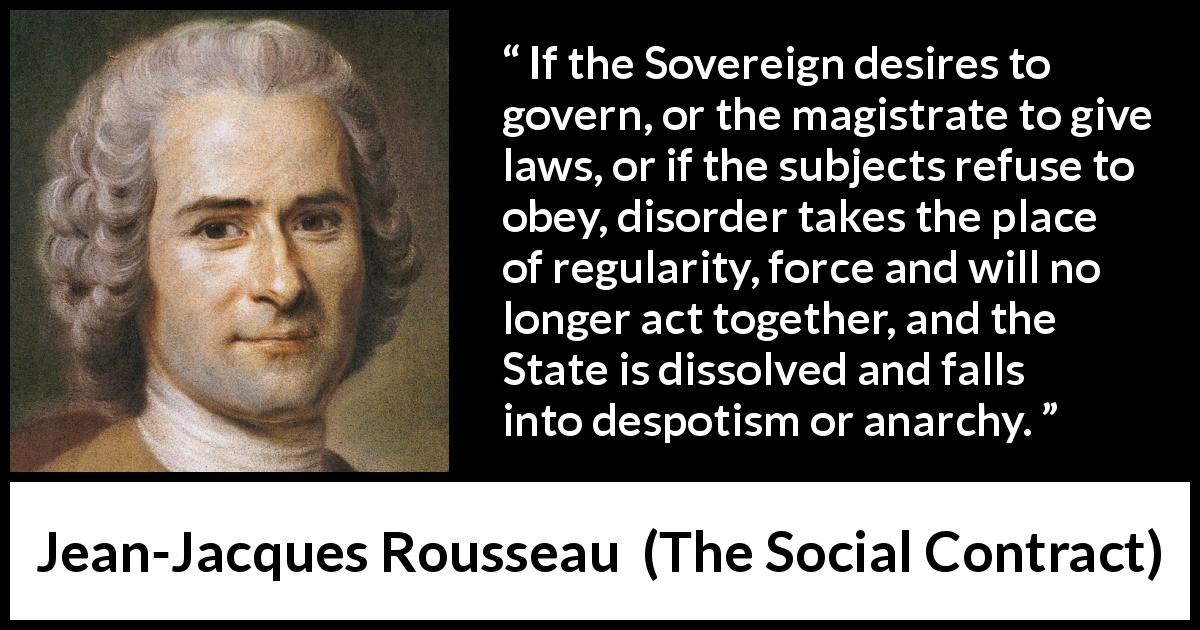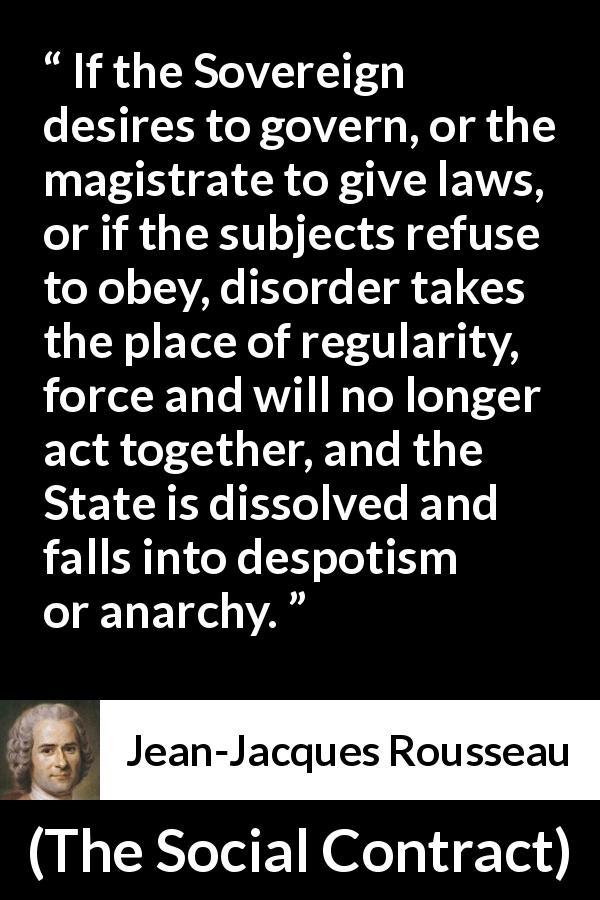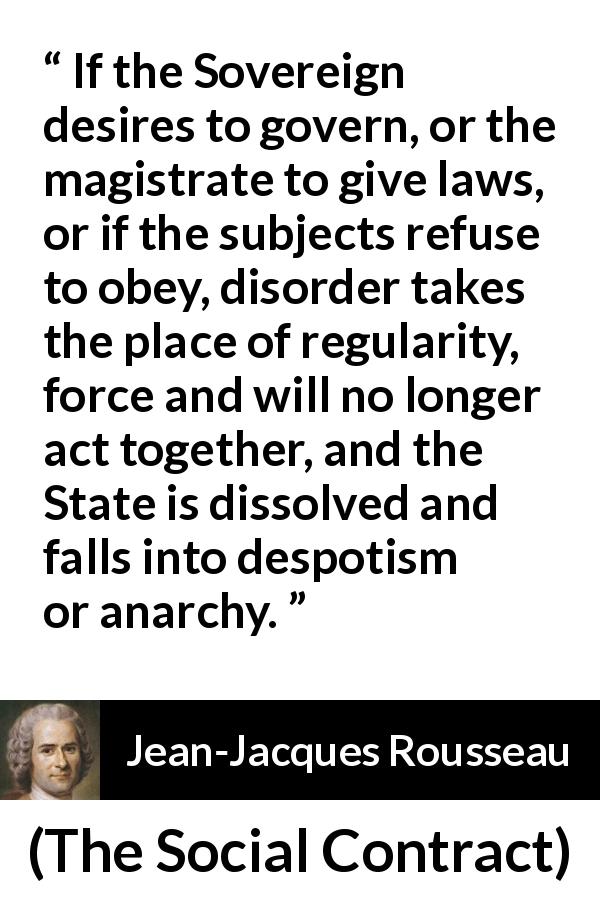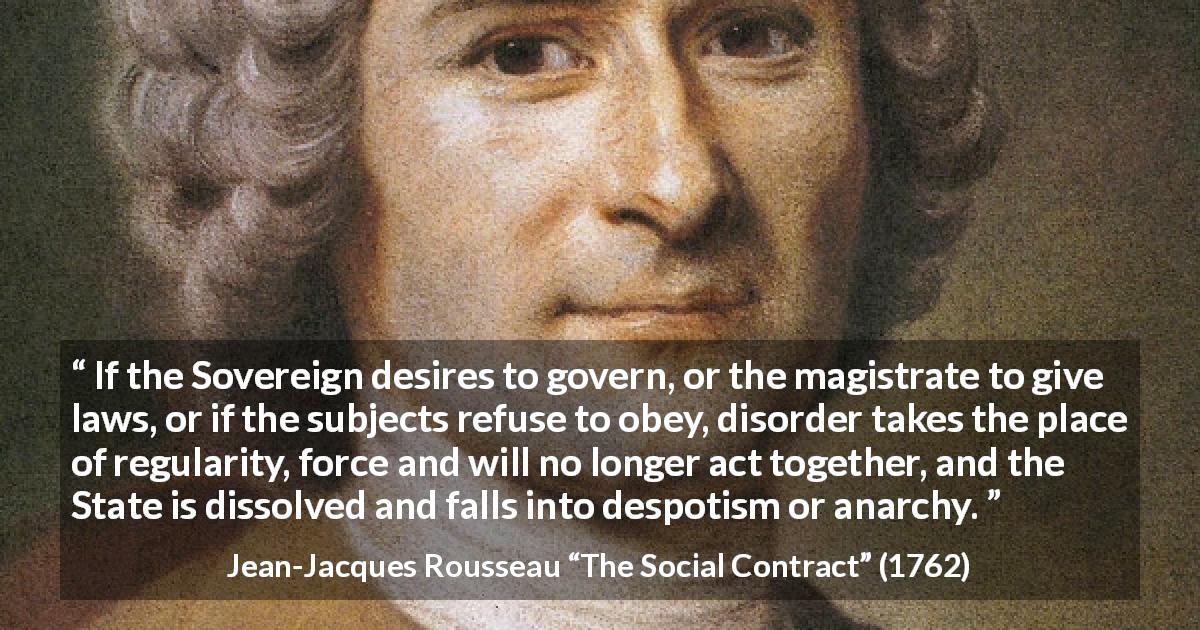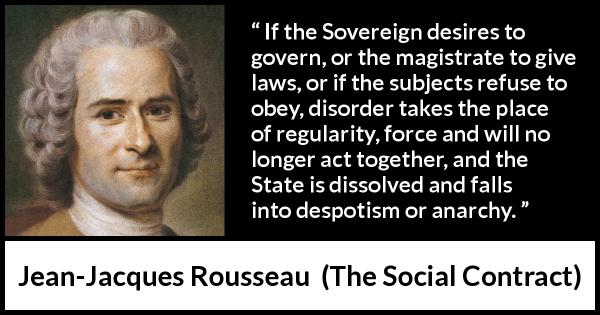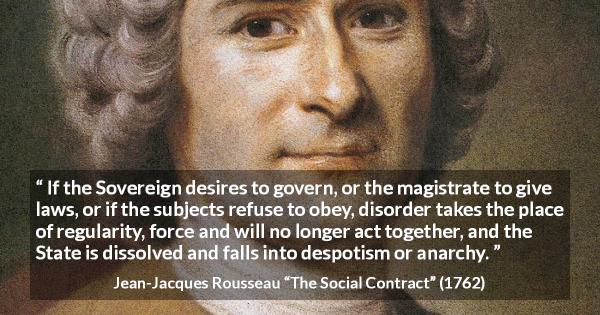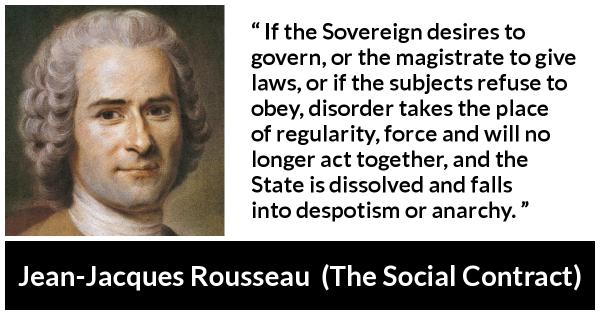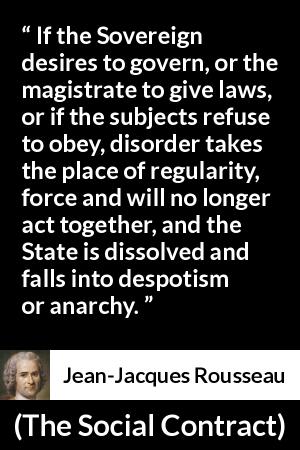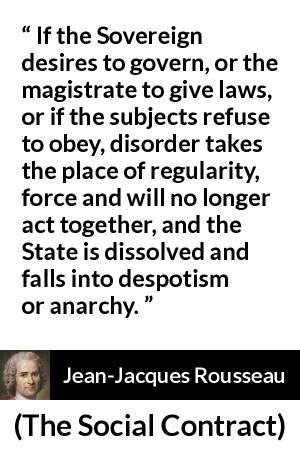“ If the Sovereign desires to govern, or the magistrate to give laws, or if the subjects refuse to obey, disorder takes the place of regularity, force and will no longer act together, and the State is dissolved and falls into despotism or anarchy. ”
Jean-Jacques Rousseau, The Social Contract (1762). copy citation
| Author | Jean-Jacques Rousseau |
|---|---|
| Source | The Social Contract |
| Topic | anarchy state despotism |
| Date | 1762 |
| Language | English |
| Reference | Of the Social Contract, or Principles of Political Law, Book III |
| Note | Translated by George Douglas Howard Cole |
| Weblink | https://en.wikisource.org/wiki/The_Social_Contract/Book_III |
Context
“The government gets from the Sovereign the orders it gives the people, and, for the State to be properly balanced, there must, when everything is reckoned in, be equality between the product or power of the government taken in itself, and the product or power of the citizens, who are on the one hand sovereign and on the other subject.
Furthermore, none of these three terms can be altered without the equality being instantly destroyed. If the Sovereign desires to govern, or the magistrate to give laws, or if the subjects refuse to obey, disorder takes the place of regularity, force and will no longer act together, and the State is dissolved and falls into despotism or anarchy. Lastly, as there is only one mean proportional between each relation, there is also only one good government possible for a State. But, as countless events may change the relations of a people, not only may different governments be good for different peoples, but also for the same people at different times.” source
Furthermore, none of these three terms can be altered without the equality being instantly destroyed. If the Sovereign desires to govern, or the magistrate to give laws, or if the subjects refuse to obey, disorder takes the place of regularity, force and will no longer act together, and the State is dissolved and falls into despotism or anarchy. Lastly, as there is only one mean proportional between each relation, there is also only one good government possible for a State. But, as countless events may change the relations of a people, not only may different governments be good for different peoples, but also for the same people at different times.” source
